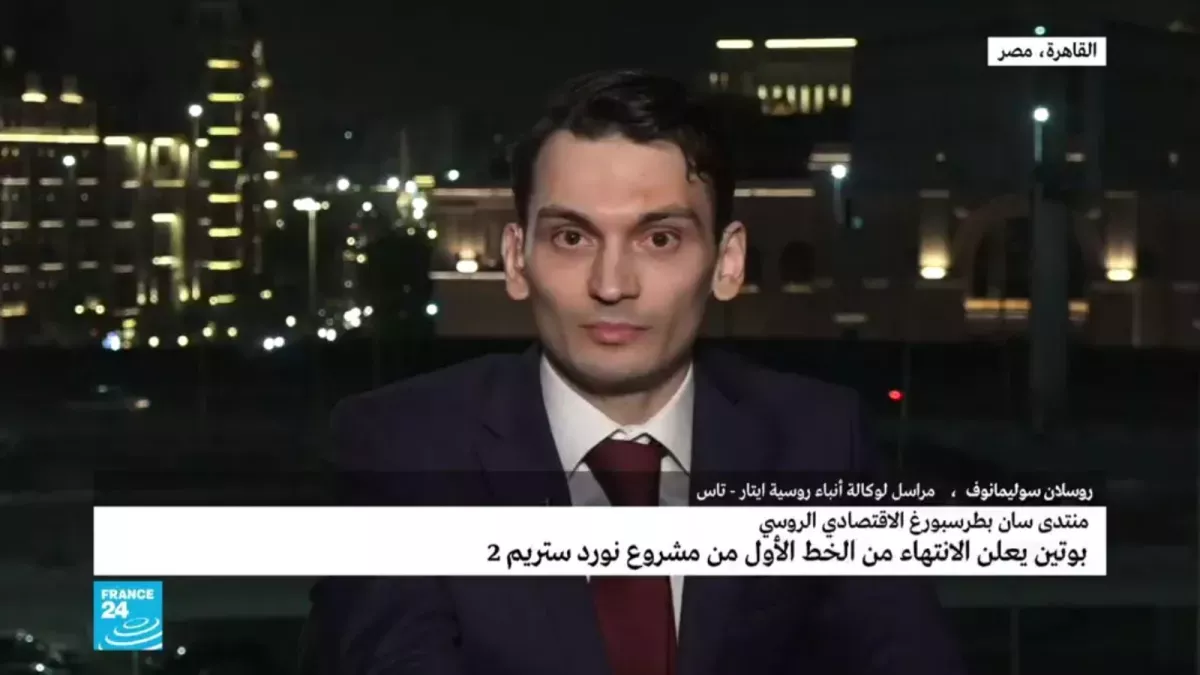What could Trump’s second term mean for the Middle East? Expert opinions
As Donald Trump, elected as the 47th President of the United States, prepares to take office in January 2025, experts are analyzing the potential impact of his second term on the Middle East.
Notably, Matt Duss, the executive vice president at the Center for International Policy in Washington, and Mark Katz, a professor at George Mason University in Virginia, shared their insights with Anadolu regarding Trump's Middle East policy.
Experts are generally optimistic about the possibility of Trump withdrawing US troops from Syria during his new presidency.
Professor Mark Katz highlighted Trump's approach of "what does he care?" when it comes to America's stance on ISIS militants.
Trump's strategy suggests that "Even if (Daesh) ISIS becomes strong again, let the people nearby deal with it. Why should the US deal with it?" Katz remarked. According to him, this view has been consistent in Trump's foreign policy.
Meanwhile, Duss reported that during Trump's first presidential term, there was a more active conflict involving US soldiers, which was a key issue on the agenda that required attention.
The expert believes that Trump will be more cautious when addressing this issue again.
"He will pay much more attention to it, and may very likely want to pull US troops out of there. He may want to do it regardless, but right now it does not seem there’s a great deal of attention on it," Duss noted.
Earlier, in December 2018, Trump, as President, announced plans to immediately withdraw around 2,000 US troops from Syria following Türkiye's decision to launch a cross-border operation against targets linked to the YPG (the Syrian wing of the PKK). He later softened this decision, ordering a phased reduction in the troop presence.
In October 2019, Trump stated that the US had stayed in Syria much longer than it should have, and that he did not want American soldiers to remain there any longer.
Trump's plans to withdraw US troops met open opposition, particularly from US Central Command and figures like Brett McGurk, who served as the Special Representative for the US fight against ISIS until the end of 2018. McGurk resigned two months before the end of his term, immediately after the Trump administration’s decision to withdraw troops from Syria on December 19, 2018. Joe Biden, elected President in 2020, appointed McGurk as the National Security Council Coordinator for the Middle East and North Africa, and US policy in Syria—particularly its support for the PKK/YPG—grew stronger.
So, what does this mean? Under Trump, could the US have left Syria, effectively ending its support for Kurdish militant groups in the northern regions of the country? This would align with Türkiye's interests, as it has been fighting these illegal military groups along its borders for over a decade. How would the withdrawal of US forces affect the ongoing conflict in Syria, a country still divided among rival factions?
These questions were addressed by prominent regional experts in an analysis for Caliber.Az.

Russian Middle East expert Ruslan Suleymanov believes it is clear that Trump will not simply withdraw US troops from Syria without negotiation.
"He is a businessman, and most likely, there will be some bargaining and attempts to exert pressure on Türkiye. However, the Syrian issue will have to be addressed one way or another. For Türkiye, this is a major headache, both due to Kurdish separatism and the refugee crisis. Currently, there are over 3 million Syrian refugees in Türkiye, and they will need to be sent back home. To achieve this, Türkiye will need to negotiate with the legitimate Syrian authorities, namely Bashar al-Assad’s regime, which is currently uncooperative and refuses to meet with Erdogan until Türkiye withdraws its forces from Syrian territory. But for that, Türkiye needs security guarantees, which will depend on Washington's position. So, I believe a compromise will be reached in the end," says the expert.
He suggests that Russia's position should not be overlooked, as it is not as strong as it once was, but Moscow remains firmly opposed to any new Turkish operations on Syrian territory. Therefore, the Kremlin will also exert pressure on Assad to reach an agreement with Erdogan and find a compromise.
"In Türkiye, there is a proposal that Moscow could act as a mediator between Ankara and Damascus, and in turn, Türkiye would do everything possible to mediate between Moscow and Kyiv.
This will be a very complex and tense diplomatic game, but I am convinced that a compromise will eventually be found, because everyone will benefit from it. Trump will present himself as the person who solved another Gordian knot in the Middle East, and Moscow and Ankara will certainly benefit from reaching a compromise on Syria. The main beneficiary, however, will be Bashar al-Assad, if he manages to restore full control over Syrian territory. Currently, he controls about two-thirds of the country," said Suleymanov.

Turkish analyst, and political science professor Haydar Çakmak believes that US Middle East policy is not determined solely by their national interests.
"Britain's and Israel's interests are also taken into account. Furthermore, the US is a global power, so it needs allies in the Middle East, just as in any other region. Without them, they wouldn’t be able to enter the region. They could use force and enter Syria without allies, but they wouldn’t feel secure or act comfortably there, it would be costly, and they wouldn’t be able to stay for long," says the professor.
According to him, it is difficult to answer "yes" to the question of whether the US will completely withdraw from Syria, as the presence of Russia and Iran is a key factor influencing US policy in both the Middle East and Syria.
"If the US completely withdraws from Syria, the Syrian government, with the support of Russia and Iran, will expel the Kurds and reach an agreement with Türkiye. But even if the US decides to leave Syria, I don't think they will do so immediately. A US withdrawal from the region would be beneficial for the countries there, but harmful for the Kurds," explained analyst Çakmak.








